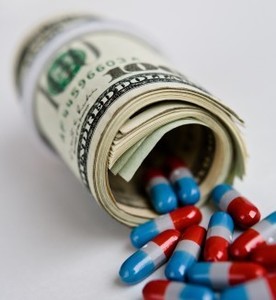Supply bottlenecks and late payments to drugmakers have hit HIV treatment supplies across India, according to reports in the Indian press. The drug shortages, which affect those least able to pay, have seen some government distribution centres running out of drugs altogether.
India suffers HIV drug shortages
Home/Pharma News
|
Posted 10/10/2014
 0
Post your comment
0
Post your comment

Patients on low incomes in India rely on free antiretroviral drugs handed out at state-run healthcare providers supplied by the country’s National AIDS Control Organisation (NACO) through a tender process. According to one activist with the medical charity Medicins Sans Frontieres, some drugmakers have stopped participating in the tender process over the past year because they were not being paid on time.
India had the third largest number of people living with HIV in the world at the end of 2013, according to the United Nations (UN) AIDS programme UNAIDS. Of the 2.1 million HIV/AIDS patients living in the country, 750,000 depend on the free distribution of drugs through government-run centres, according to NACO.
A senior official at the government-run Maharashtra State AIDS Control Society said they were facing a shortage of three HIV/AIDS drugs – two for treating children and one for adults. The capital of Maharashtra state is Mumbai, the most populous city in India. The society is reportedly looking to get the threatened drugs from other states. India’s Health Secretary has been quoted as saying that he understands the situation is not as bad as it looks, nevertheless, the government is looking into the matter.
The Deputy Director of NACO, Dr Rathore, is reported to have named Indian drugmaker Cipla as one of the firms that is no longer bidding in the tender process. Mumbai-based Cipla manufactures generics of many of the most commonly prescribed antiretroviral (ARV) drugs in the market [1] and it is currently estimated that 40% of HIV/AIDS patients on ARV therapy worldwide take drugs manufactured by Cipla.
Activists in India say that Cipla pulled out because it was not being paid on time by the government, but this is denied by Dr Rathore who says that the company gets more money by exporting drugs out of the country.
Related articles
Patients at risk from UK drug shortages
Shortage of HIV/AIDS drugs in South Africa
Reference
1. GaBI Online - Generics and Biosimilars Initiative. India’s top pharma company strengthens ties with South Africa [www.gabionline.net]. Mol, Belgium: Pro Pharma Communications International; [cited 2014 Oct 10]. Available from: www.gabionline.net/Generics/News/India-s-top-pharma-company-strengthens-ties-with-South-Africa
Permission granted to reproduce for personal and non-commercial use only. All other reproduction, copy or reprinting of all or part of any ‘Content’ found on this website is strictly prohibited without the prior consent of the publisher. Contact the publisher to obtain permission before redistributing.
Copyright – Unless otherwise stated all contents of this website are © 2014 Pro PharmaCommunications International. All Rights Reserved.
Source: NACO,Reuters, The Times of India
Guidelines
US guidance to remove biosimilar comparative efficacy studies
New guidance for biologicals in Pakistan and Hong Kong’s independent drug regulatory authority
Policies & Legislation
China updates regulations to encourage research and innovation and improved drug safety
Brazil and Mexico forge alliance to streamline medical approvals and boost production
Formycon signs new aflibercept biosimilar pacts and launches ranivisio in Europe

Home/Pharma News Posted 13/11/2025
The best selling biotechnology drugs of 2008: the next biosimilars targets









Post your comment